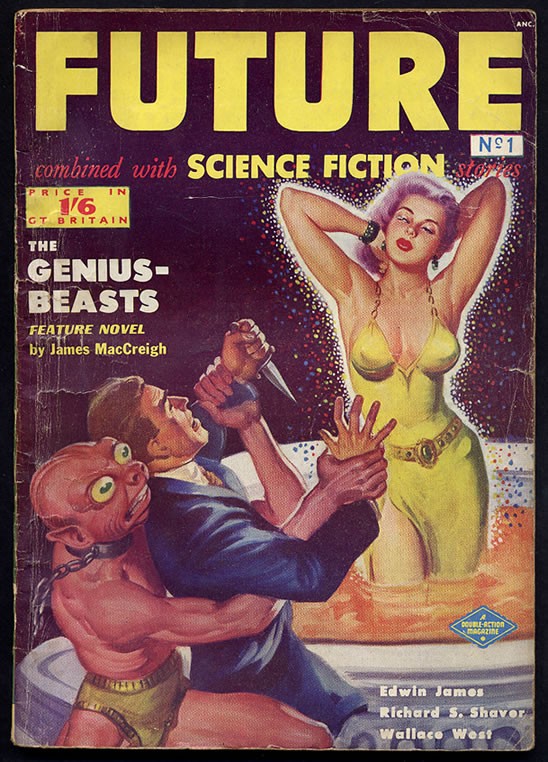Last Saturday night, a collection of artists gathered together in Los Angeles to celebrate the craft of science fiction in a lavish and grand affair. Well, in actuality it wasnâÄôt much more than a rented college banquet room and a collection of nerds but it was still a bit better than gathering around a monster manual in someoneâÄôs parentsâÄô basement. The prize being awarded at this get-together was the Nebula Award, one of the most important in the field of sci-fi. In many ways, the Nebulas are science fictionâÄôs equivalent to the Oscars or the Grammys; an annual round-up of the best of the business across many different levels that can mean different things to different people. Don Blyly, the owner of Uncle HugoâÄôs Science Fiction Bookstore on Chicago Avenue explains that, âÄújust because something wins a Nebula award doesnâÄôt always mean that it is the best,âÄù though much like its cinematic or musical equivalent, the prestige of winning this galactic award is undeniable. The first Nebula Award was given in 1965 when Frank HerbertâÄôs âÄúDuneâÄù won for best novel. Since then, the Nebulas have included among its recipients such sci-fi giants as Isaac Asimov, Arthur C. Clarke and Orson Scott Card . There is no prize money awarded for the Nebulas , but the ownership of a Nebula is an important step in becoming a sci-fi legend. The face of sci-fi has changed greatly since 1965 which was still a pre-âÄúStar WarsâÄù and pre-âÄúStar TrekâÄù world (âÄúStar TrekâÄù wouldnâÄôt premiere on TV until later the next year ). Uncle HugoâÄôs, which happens to be the oldest dedicated science fiction bookstore in the country , has witnessed those changes in sci-fi through the decades. Blyly could remember when âÄúpeople used to think that if something was successful then it must not be sci-fi.âÄù Science Fiction wasnâÄôt considered mainstream and was treated more as the fantasy of eccentric geeks rather than a pure art form. Nowadays, the definition of what is sci-fi has become blurred and in some ways much more inclusive rather than exclusive. Today, âÄúlots of things are being labeled sci-fi because itâÄôs now being seen as a good thing,âÄù explains Blyly. This batch of Nebula awards can well attest to this opening of the genre. Among the nominations for best script was âÄúThe Dark KnightâÄù for example, a hugely popular film that grossed more than $500 million at the box office and for all intents and purposes is quite divorced from what people see as the underground sci-fi culture. When it comes to good sci-fi, some sci-fi elders, like Blyly, can âÄútell it when they see itâÄù explaining it as a window into an alternative version of reality whichever way that window is opened. Sci-fi answers the question of âÄúwhat if?âÄù for the audience. What if we canâÄôt control our creations? What if we knew the secrets of the universe? What if we could live forever? At the end of this yearâÄôs Nebula soiree, the winners of the 2009 Nebula were announced: Ursula K. Le Guin won best novel for âÄúPowers,âÄù Nina Kiriki Hoffman got best short story for âÄúTrophy WivesâÄù and the winner of best script eluded âÄúDark KnightâÄù going instead to DisneyâÄôs âÄúWall-E.âÄù Chuck Lorre, Hollywood writer and producer for shows like âÄúTeenage Mutant Ninja TurtlesâÄù and âÄúRosanneâÄù intoned the keynote to the well dressed crowd. The modest ceremony may have lacked both the money and the glamour of its more fancy peers but the Nebulas, like the case of playing DND, have always been a prize not of fashion but of intellectual achievement.

Image by Ashley Goetz
Does she look like Mila Jovovich? No! Sci-fi lit has come a long way. PHOTO COURTESY DOUBLE ACTION
Sci-Fi Par-Ti at the Nebula Awards
These off-beat awards reflect the changing face of Science Fiction
Published April 29, 2009
0
More to Discover







